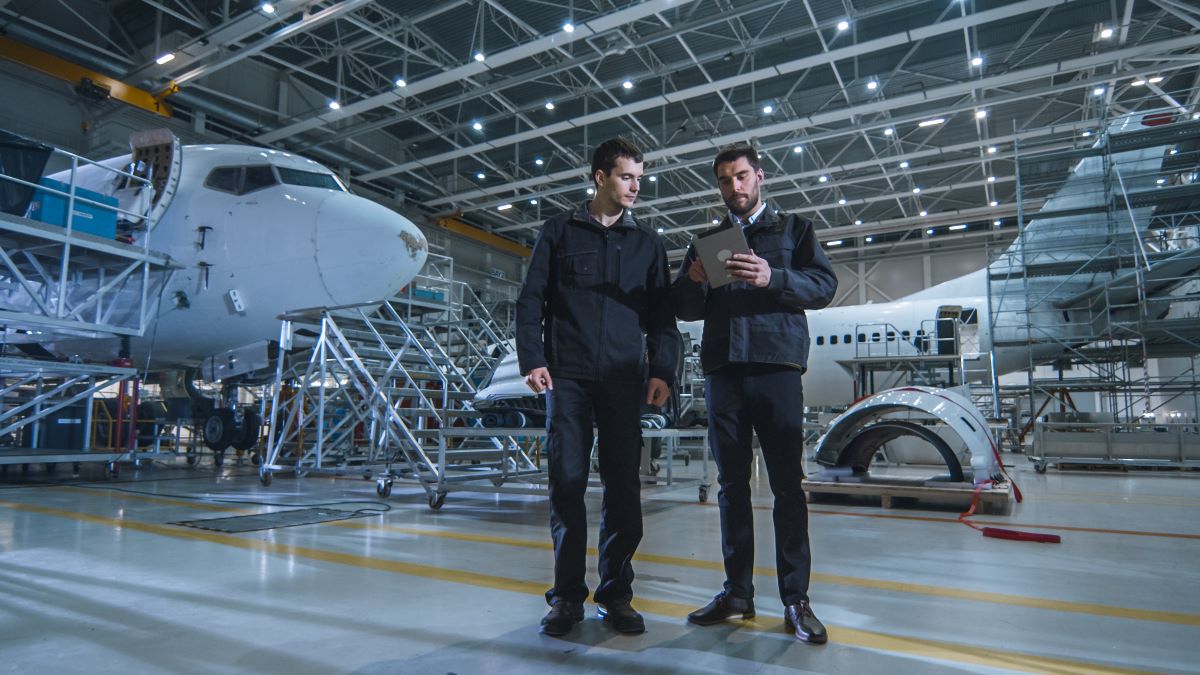Airlines and MRO companies are already pioneering some AI solutions in their maintenance and repair activities and exploring the potential of many others. There is considerable focus on generative AI’s potential in this area. One question this raises is: what will happen to aircraft maintenance engineers and technicians in a world dominated by generative AI? In this article, the Director of Dubai-based Aviation Consultancy Aerviva, Jainita Hogervorst, offers some answers. Aerviva specializes in aviation recruitment and document management services, and Jainita explains in depth which skills will be in-demand as the adoption of generative AI picks up pace.
The current state of AI in MRO
“The rapid post-COVID growth in commercial travel, combined with a maintenance backlog and limited aircraft availability, is putting significant strain on MRO operations,” explains Jainita. “This is exacerbated by a tight labor market.” Based on the CAE Aviation Talent Forecast and the FAA’s Civil Airman Statistics, McKinsey forecasts that by 2033, 20% of all MRO positions will be unfilled.
“These forecasts show that maintenance engineers and technicians will remain in high demand – AI is not going to replace people in this sector,” says Jainita. “Instead, airlines and MRO companies see AI as an important tool in enabling their specialists to do more. AI is already being used in a wide range of capacities, including routine replenishment, C checks, and backlog management.” AI is also being leveraged for more complex functions. Researchers from Amsterdam University of Applied Sciences and AirFrance/KLM have highlighted the ongoing development of predictive maintenance using digital. “The ability to anticipate maintenance issues ahead of time and proactively address them is huge,” comments Jainita. “It cuts costs while reducing downtime, and AI is already playing a key role in this area.”
Potential uses of generative AI
“Currently, AI is mainly being used to organize and analyze large volumes of data,” argues Jainita. “Generative AI takes things a step further, providing advice or guidance and recommending courses of action. This has very exciting potential, but there are also important questions specific to MRO that need addressing. This is a highly regulated sector with very stringent safety requirements, large knowledge bases and complex intellectual property questions.” The EASA in Europe has already put together guidelines on the adoption of AI in aviation, including its use in aircraft maintenance. Its 2023 AI roadmap emphasizes the need for transparency, good data governance, human oversight, and technical robustness and safety.
Despite these MRO-specific questions, companies are already exploring ground-breaking applications of generative AI. According to a recent IBM analysis, AAR Corp is considering how generative AI can be used to optimize inventory, improve warehouse operations, and automate parts ordering. Meanwhile, Lufthansa Technik (LHT) has identified several ways generative AI can be applied in MRO. These include generating new work scopes and instructions in unexpected situations based on input from engineers, and retention of knowledge and best practice within an organization.
McKinsey’s recent report on generative AI in MRO places high emphasis on the value of virtual AI experts. These bots can be used to rapidly research specific maintenance issues and provide suggestions and advice. For example, AirFrance/KLM is developing a generative AI bot, called Thalia. Thalia’s potential uses include timely communication with clients, supply chain optimization and risk management.
5 future MRO skills that will be in-demand thanks to generative AI
As generative AI becomes more widely adopted, Jainita suggest 5 key skills that will become increasingly in-demand for aviation engineers and technicians.
Decision-making. “Generative AI assistants will handle a lot of research tasks,” comments Jainita. “This means one of your key roles will be making decisions based on the suggestions provided and doing this at a faster pace. The skill of quickly weighing a situation and then being decisive will be highly valuable.”
Wide-ranging technical knowledge. “You will need to oversee what generative AI is doing and look out for any ‘hallucinations.’ This requires strong technical knowledge and being on top of the regulations to ensure all maintenance tasks are done in compliance with the latest standards.”
Working with digital twins. “Digital twins are being widely adopted, and AI is being used to analyze them. You will need to be comfortable and familiar with using digital twins in your maintenance work as they are going to be ever more popular.”
Understanding prompts and reward functions. “This is a technical point, but it is extremely important. To accurately understand the output of a generative AI, you will need to understand the semantics of prompts (what you tell a bot to do) and reward functions (the objectives and motivations the system has been given).”
Communicating with data scientists and other teams. “Unless you also learn data science (which would make you extremely employable), you will need to be a ‘translator’ – someone who can explain aircraft maintenance to data scientists, who then build and work with generative AI systems. AI tools are also desiloing a lot of processes in MRO, so you can expect more work with other departments as well.”
Prepare now so you are ready for the generative AI revolution
“Whether you are studying, applying for positions, or already in the industry, you need to prepare now for the changes that generative AI will bring,” counsels Jainita. McKinsey forecasts that generative AI virtual assistants could free up 15% to 35% of additional capacity for maintenance technicians. “This transformation may not happen overnight owing to the high safety standards and levels of regulation in MRO,” says Jainita. “But make no mistake, in the long-run use of these tools will be widespread. They will enable cost reductions, increased efficiency, and higher levels of productivity from in-demand MRO specialists. Developing the skills needed to work with these AI systems is a smart step. These are skills which are useful right now and will be indispensable in the future.”

